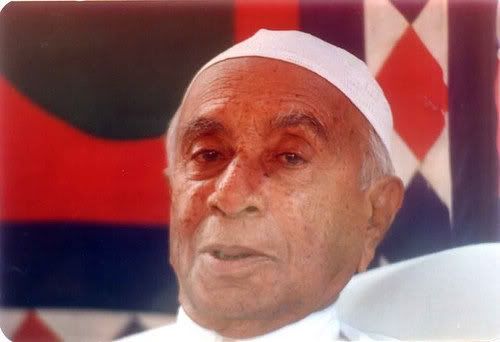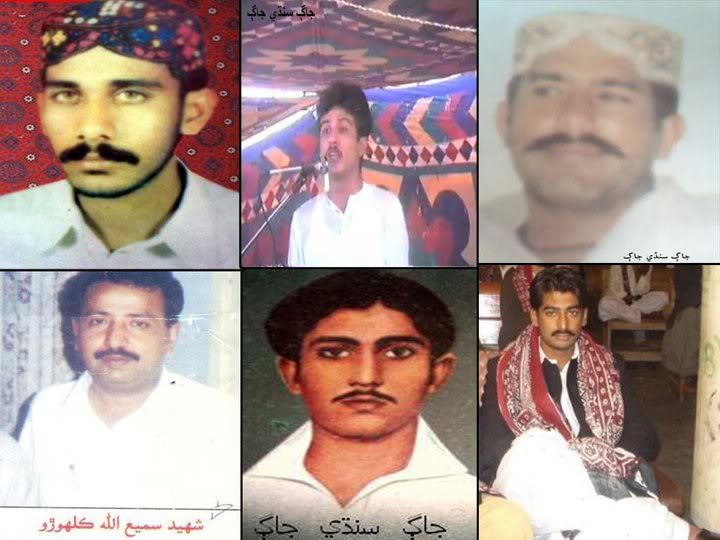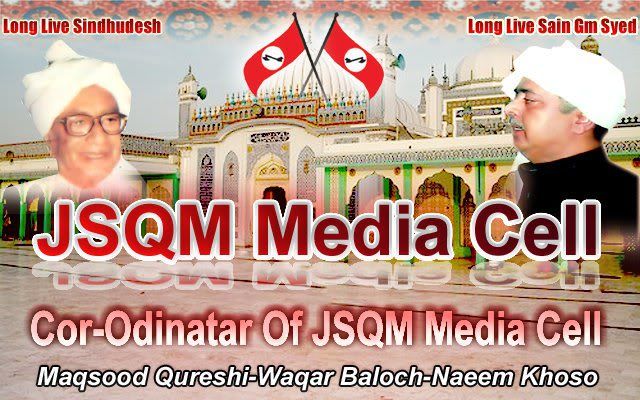Men, who believe in religion, can be divided into two groups. One group believes in the diversity of religions and therefore, attaches great importance to religious differences. The other group regards these differences as superficial. However, at the same time, it tries to find out the unifying factors, which are common to all religions. One of these two groups has a positive approach and negative one. Which of these groups fulfills the divine will and which acts contrary to it, which of them works for the betterment of mankind and which does not, are questions which will have to be discussed in some detail.
Theory of variation
As should have been evident from the preceding pages all religions have had their origin in superstition and dogma. Similarly, social and moral codes, prayers and observances went a long way to shape them. These beliefs and rituals were prevalent in the tribal societies of the past. It was but natural those different societies should adopt different ways to satisfy their inner urges. This way, innumerable major and minor religions came into being. A large number of them vanished with the passage of time because they were either not practicable or lacked the power to retain their hold. However, if the mushroom growth religions in the past are ignored we cannot lose sight of the major religions of the world, which are still surviving. At the same time, if the sects of these religions are taken into account, their number will run into hundreds. Therefore, inter and intra-religious differences cannot be ignored
With regard to these distinctions, there appear to be two attitudes. One of them is that if integration or centralization. The other is that of disintegration or decentralization or religious unity or diversity. In politics, people give priority to their personal gains others serve group interests. However, at the same time, there are men who work for society as a whole. Similarly, there are a large number of men in the field of religion, too, who don't possess the power to look too far ahead and they content themselves with remaining confined to certain formalities of religion. However, there are very few who are dedicated to the service of humanity. Thus, to the first group, belong the overwhelming majority of the believers. Whose limited vision does not allow them to comprehend anything more than that all religions differ, whereas the other group of believers, though comparatively much smaller in number but far superior in intellect, finds that all religions are beads of the same rosary. In this way, the first group stands for religious diversity while the second one advocate's unity and accord. I shall not dwell at this stage on the second group but throw light as to why and how religions sprang up. Since religious groups are formed voluntarily on the basis of certain beliefs, initials, social and ethical codes, each one of them is organized on the following lines:
- The founder of religion and his close companions are projected as supernatural beings. It is the duty of the followers to emulate the founding fathers.
- The teachings of the founder of each religion and his close associates are treated as works of transcendent intellect. Their teachings are regarded as eternal truth and the pillars of their faith.
- Religious and social codes as prescribed by the founder of each religion and his associates. They are regarded as the way to salvation.
- Each religious group becomes convinced that only its own faith is rightfully and legitimate and all other religions and sects are false and spurious.
One who understands Islam in its true perspective does not regard even the most insignificant object in Creation as mean and contemptible. On the other hand, he tries to make the utmost use of everything. The true believer is one who believes man to be the vicegerent of God and His best creation. Further, he does not ignore the fundamental facts that:
(3) No faith, precept or idea is eternal nor can be equally useful for all ages. Religious laws go together with the law of evolution. These laws can neither be unnecessarily stretched nor truncated. However, if any faith, philosophy or idea obstructs the progress and prosperity of mankind, it tends to become unnatural and is finally discarded.
Arcane knowledge
It is an admitted fact that talent and intellectual of people have differed from age to age. Some are cultured, learned and men of insight; others are uncultured, ignorant and bigoted. People in the second category have always been in a large majority while the first type of people has been very little in number. Not only in talent have these groups differed but this difference has been reflected in their beliefs, viewpoints and in all other walks of life. One made ephemeral and superficial things as the basis of religion; the other group found the fundamental principles of religion of supreme value. The one worked for the present, the other for the future.
Some of the teachings and preaching of the prophets are for the masses and some for the elite. This is so because some of the teachings meant for men of learning are beyond the comprehension of the common people. As intellect and power of comprehension differ from person to person, religious concepts, beliefs, duties and responsibilities are also different.
After some time, when religions and their sects acquire the shape of bodies with vested interests, it becomes expedient for their leaders or exponents to dominate all others. In an endeavor to perpetuate power, the rulers, religious leaders and capitalists of kindred faith help each other since their interests converge. They do not encourage anything which promotes the spirit of tolerance among the masses or which weakens superstition and prejudice. They keep on nurturing these evils because; they consider them as a means for safeguarding their own interests. Through these evils, they incite people against such men who are generally dedicated to the well being of the masses. This is the reason why the saints unlocked their innermost secrets to a select few and refrained from propagating them at the mass level. These saints can be divided into two groups:
The introvert saints were fully aware of the menacing terror of the vested interests and vicious prejudices created by men in power. These vested interests were against the common weal. This becomes all the more virulent when, in the first place, society is dominated by men of low morality; secondly, the servile masses, being under their baneful influence, have no capacity for tolerance. In this state of affairs, the saints could not be altogether silent, but they could not freely express themselves, either. It is for this reason that they adopted this way to kill two birds with one stone. At every step, they felt threatened by the men with vested interests. Therefore, they selected signs and symbols for communicating with the elect. They succeeded in conveying their message and were safe from the mischief of the exploiters.
The Extrovert saints (Majzoob)
These saints were guided more by passion than reason. They disseminated knowledge openly and fearlessly. They knew very well that their teachings would strike at the roots of superstitions and narrow-mindedness. As a result, the fury of exploiters would be let loose. In spite of these odds, the saints had confidence in the justness of their mission and in the innate love people had for justice. Although the masses have little analytical power, and it is time-consuming to sift truth out, the fact is that the masses are generally exploited because they are gullible and lack memory. However, they are essentially good-natured and have feeling hearts. The extrovert saints felt that the masses would not immediately listen to them, but when the exploiting priests and rulers made them the target of their aggression, they would really wake up. This was the reason that the extrovert saints openly preached their faith regardless of the consequences. With great fortitude, they not only suffered the atrocities of the exploiters, but also proved that punishment was no remedy. Advocating the cause of such valiant souls, Ghalib says:
Now the question arises as to what was that which the introvert saints taught through signs and he extrovert saints preached openly, thus exposing and jeopardizing the vested interests of the professional priests and the ruling classes. In my opinion, the sun and substance of this kind of preaching was that the Creator is the Real Being and, except Him, there exists nothing. All other manifestations are His own Attributes". As Shah Abdul Latif Bhitai says:
Only the saints and the seers could get anywhere near Divine Knowledge. Among the Muslims, Hazrat Ali was the only one who knew the secrets of the Holy Prophet. The saying of the Prophet of Islam. I am the city of knowledge and Ali is its gateway is a reflection of the same verity. In fact, this is the very principle of this creed. In it, the knowledge about realities or secrets is transferred from teacher to disciple. This kind of knowledge is gained through companionship and through love. Among the men of learning, the Vedantists, the pantheists and the mystics have shed ample light on this subject. Among the old philosophers, Plato and, in the present times, Spinoza and neo-Platonist philosophers have also discussed the issue at length. In the East, Swami Vivekanand and some other among the Hindus and Mohiuddin Ibne Arbi among the Muslims, have tried to prove it in a philosophical way. Further, Sarmad, Shah Enayat, Sachal Sarmast and a few others have been the preachers and torchbearers of this creed. In other religions too, such noble men have existed.
Readers are urged to bear in mind the fact that the lovers of truth and the spiritual guides have always been opposed to religious bigotry because it breeds ill feeling and hatred among men. However, the rulers and the monopolists of religion always defied these saints and their teachings. Therefore, they employed all means at their command to suppress the teachings of the saints.
Among the Muslims, Imam Ghazali and Mujaddid Alif Thani have presented philosophical arguments in the favor of the establishment of the religious ‘state. Among the Hindus, the scholars of Arya Samaj have laid stress on Aryan culture". Similarly in the Christian world, there were movements as "Renaissance" and "Reformation".
In this book, I shall keep myself confined to the origin and development of the concepts of Wahdat-ul-Wajud and · Wahdat-ul-Shahood. Other religious movement can be understood in their light.
Wahdat-ul-Wajud
The profounder of this concept, among the Muslims, was Sheik Mohiuddin bin Ali Ibne Arbi. He is known -by the title of Sheik-ul-Akbar. Ibne Arbi was born in southern Spain in A.H. 565 corresponding to A.D. 1164 in the city of Meritha. It is said that he was a descendant of Hatim Tai. In A.H. 586, he became a disciple of Shaikh Abu Bakar bin Khazab in Lisbon, the capital of Portugal. In those times, Sultan Mohammed was the Governor of eastern Spain. After finishing his early education, Ibne Arbi went to Sayut where he gained further education at Cordova. Then he went to Fez in Morocco. Therefrom, he migrated to Alexandria in Egypt, and finally, he settled in Damascus in Syria. He died there in A.H. 638 (A.D. 1240). He was buried in JabaI Qasian in the cemetery of Qazi Mohiuddin.
In Islamic mysticism, he expounded the precept of Wahdat-ul-Wajud in a philosophical manner. After-wards, this concept spread all over the Muslim countries. However, it would not be right to say that it did not exist before him. The Muslim mystics believe that it was taught to Imam Ali by the Prophet and, from him, it kept moving from generation to generation. Mansoor, Hallaj, Shams Tabrez and Khawaja Fariduddin Attar openly preached it. However, Ibne Arbi first made philosophical exposition. His famous book, entitled Fasusul Hukum is a work of immense value and is worth reading.
The theory of Wahdat-ul-Wajud is also called the theory of "All is He" which means, "the only existence is the Absolute or All-existent". This ‘Absolute-existence’ is God. Nothing exists but Him. The universe is a manifestation or a shadow or His light, which is, called the world of attributes and this world has no existence beyond Him; the slogan of the advocates of this theory is "There is no existence except Allah".
As inseparable the reflection of man's face in the mirror, his shadow on earth, the echo of his voice; similarly, His attributes are not different from Him and they are the reflections of the Real being.
As regards the effect of this theory on conventional religion and politics, a discussion on the subject will not be uninteresting. Since, according to this theory, the reality of everything is One, instead of hatred and discord; its believers find a universal bondage of love and amity. They expose the secret of unity, which is hidden in diversity. This theory cuts at the roots of religious bigotry dividing men and creating many differences among them. It also leaves no room for exploitation in the name of religion. Thus, it criticizes the rulers, the exploiters, and the monopolists of religion and all those who suck the blood of the people in the name of their faith. Such classes, when they see that their interests are at stake, get secretly united and employ all means in order to stifle the voice of truth-lovers. It is an irony that religious monopolists have always obstructed the teachings of the truthful. It is also a fact that whenever a professional religious group tried to exploit the religious sentiments to the extreme, thus spreading bigotry and narrow-mindedness, the believers of Wahdat-ul-Wajud also assumed an equally serious stance. As the poet says:
Another name of this concept is "Everything is from Him." According to it, all existing things are the creation of God. The Absolute is God. He is above all creation and is Holy and High. The world of attributes cannot be associated with Him. Spirit and matter are two separate things.
First of all, this theory finds expression in virtue and vice, atonement and sin, reward and punishment. Then it advances further, and adding intensity to the collective belief of faith and infidelity, it influences social and political life. Religious institutions consider it their duty to liberate people from "infidelity" and set them "on the path of truth. In order to bring people to their fold, the monopolists of religion first use preaching, and subsequently, force. To them, unity is sheer superstition and innumerable manifestations as the Absolute Reality. On this basis, they accept the distinctions of high and low.
So far as it is a question of organizational set-up among like-minded individuals and groups, it is useful. However, the fact is that beliefs never remain confined to their authors. Later, these beliefs create social disturbance and discord. History is a witness that, after a stage, the adherents of a concept Lakes to extremism. This idea or kindred ideas lead to sects and schisms. Within a religious order, or a race that creates violence. Blind following of a sect has sometimes brought to surface the fascists who have disturbed world harmony. The growth of this concept in religion has been extremely detrimental to the freedom of expression, freedom of conscience, democracy and broad mindedness. Fascism has, in fact, given birth to many divisions such as high and low among the individuals, superiority and inferiority complexes among the races.
So far as I think, both the concepts have retarded human progress. People interested in Wahdat-ul-Wajud should also read, in addition to their own literature, works on Yoga, the Bhagvad Gita, addresses by Swami Vivekanand and of Swami Ram Tirath, the writings of Plato, Spinoza, the neo-Platonists, etc.
Rational or scientific method
In the chapter devoted to the ‘History of Religion’. It has been discussed how religions originated and how their customs, rituals and laws evolved with the passage of time. Through research on these evolutionary stages, scientists have tried to prove that beliefs and codes, born of hope and fear, have developed gradually. This development will continue in future, too. Like chemistry and biology, the scientists also treat religion as a field of learning related to the social and intellectual evolution. Despite being divided into different beliefs and codes of conduct, religions have a fundamental unity and are ever developing. As the theories and generalizations in other branches of learning were rejected or accepted after trials and experiments, similarly there has been acceptance and rejection of religious beliefs also and this will continue. The social codes or set of beliefs are not eternal in any religion. It is the law of evolution that forces everything to change.
According to the mystics, Islam is also natural, progressive and evolutionary in its laws. It has opened new vistas according to the exigencies of times. Its fundamental principles are world peace, unity and progress of mankind. That is why the title of the Prophet of Islam is "Blessing for the worlds" and the God of Muslims is "Preserver of the worlds" whose mercy and blessings are for the whole world. The Qur’an says:
According to the Muslim mystics and scientists, true religion, ever since its beginning, has been the same and shall remain the same. It’s various expositions and forms are only surface-deep. In a garden, just as various flowers add to its beauty, so do variegated beliefs add to the luster of religion. The option should be given to the individual which particular flower to choose. Nobody should be allowed to monopolize the orchard i.e. religion. Nor should any one object to the choice of a flower by anyone. The whole orchard is the common property of all mankind. No one can be deprived of the right to its use.
A question arises as to how these conflicting ideas in unity and diversity of religions can be got rid of. We see that by now, two attempts have been made in this connection. The one is positive the other negative. As regards the positive attempts some men have thought that the best points of all religions be put together. However, many men have endeavored to force upon the world their own beliefs or sectarian prejudices.
Both of these attempts have, historically speaking, failed. The attempts made by Guru Nanak, Kabir, the Muslim mystics, Raja Ram Mohan Rai have led to the formation of more religious groups. On the other hand, the great religions of the world which include Buddhism, Christianity, Hinduism and Islam, in spite of converting millions of people and gaining the status of international faiths, could not unite the human race, nor could they root out prejudices and differences. It is vain to think that, in future, all the people of the world will come into the fold of a single religion. The means by which religions spread are power, preaching and birth rate. In the world of today, there is no religion, which either wields so much power or has such an appeal so as to attract the whole human race. The expansion of a religion largely depends upon the birth rate of its followers. However, it too has its limit. A religion can be reckoned a force when all its followers adopt a composite economic and political system and they rally round a single personality. However, for the major religions of the world, it has neither been possible, nor can it be possible in future.
In these conditions, there remains only one way of promoting peace, progress and welfare of mankind coexistence. Institutionalized religions should give up vested interests. Religion should be regarded as the personal right of an individual. Narrow-mindedness and bigotry should be shunned, and there should be a broad band co-operation in the larger interest of peace and prosperity. To sum up:
















Currently have 0 comments: